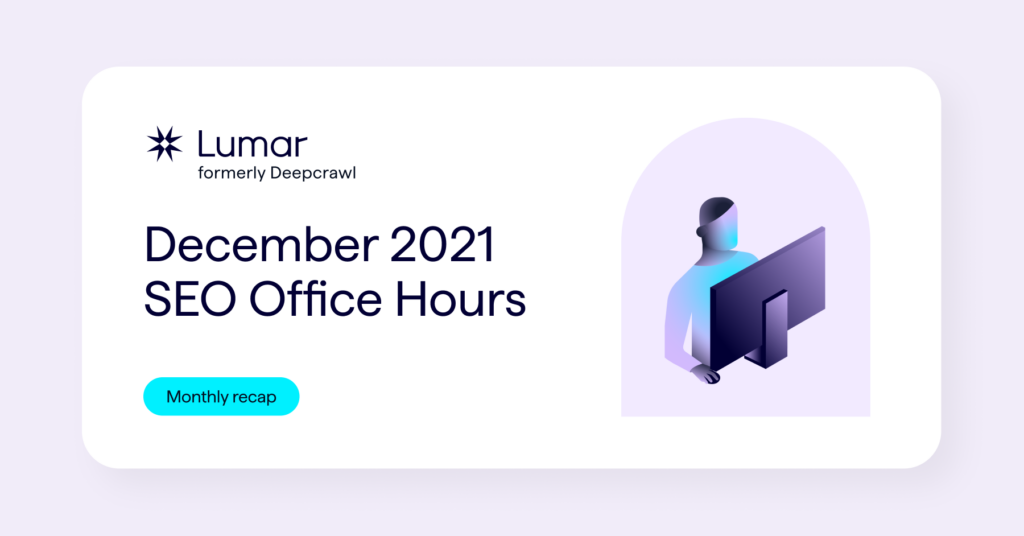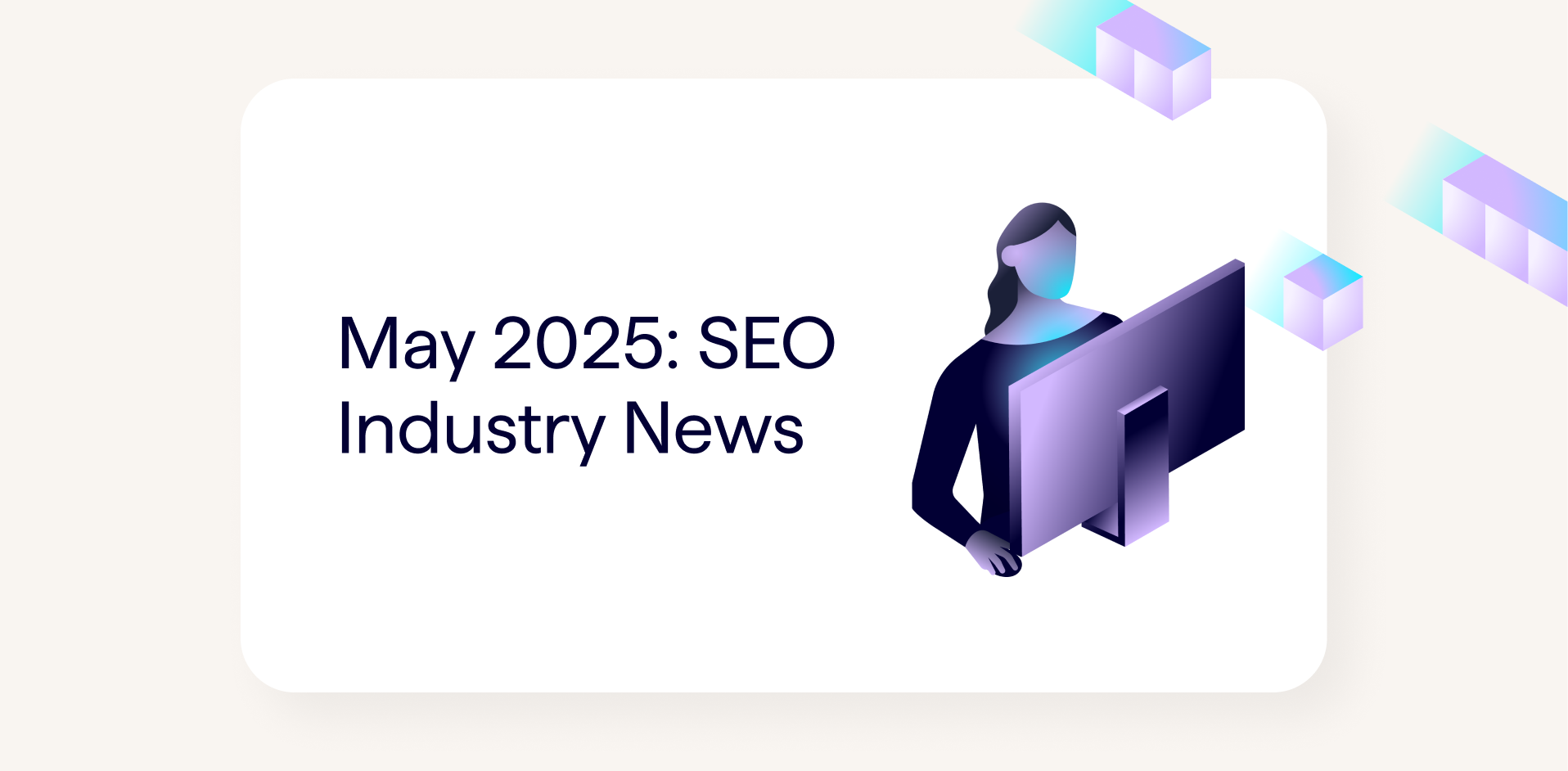—
About this blog series: Our team here at Lumar (formerly Deepcrawl) regularly attends Google Search Central’s SEO Office Hours events. Even better: to help SEOs and marketers stay informed on the latest developments in organic search and find up-to-date, straight-from-the-source advice from Google’s search experts, we’re sharing our notes.
Read on for our top takeaways from the past few weeks in Google’s SEO Office Hours sessions.
It is not possible to specify which countries and regions content should rank in
There is no way to prevent Google indexing content in specific countries and regions, even if it’s not targeted to that audience. The example given was a user who wanted English pages to rank only in the US and the UK. If Google deems the content as relevant to users in other locations, there’s every chance it will be indexed there too (and nothing that webmasters can do to prevent this).
Skip directly to this part of the conversation below:
Best practices for canonicals on paginated pages can depend on your wider internal linking structure
John tackled one of the most common questions asked of SEOs; how should we be handling canonical attributes on paginated pages? Ultimately, it depends on the site architecture. If internal linking is strong enough across the wider site, it’s feasible to canonicalize all paginated URLs to page 1 without content dropping from the index. However, if you rely on Google crawling pages 2, 3… and so on to find all of the content you want to be crawled, make sure that paginated URLs self-canonicalize.
It’s recommended to keep the same URL when converting image file formats
Converting image formats (for example from JPEG to WebP) has the potential to impact existing rankings. Where possible, it’s recommended to keep the same image URLs and just swap out the files. Otherwise, Google will need to discover and index those new URLs in the same way it would for text-based content.
Even significant speed improvements may only have a subtle impact on visibility
John warns users not to expect significant rises in visibility from speed improvements alone. This is true even if the speed goes from very slow to very fast in a short space of time. Given the complexity of Google’s algorithms, changes that affect page speed in isolation are likely to have a much more subtle impact on visibility.
It can take months for Google to reassess site quality
Google essentially has no memory when it comes to technical issues and there should be no lasting impact once a cause has been resolved. However, it can take Google weeks or even months to determine the quality of a site and establish how it fits into the wider context of the web. Therefore, improvements to site quality can take a lot longer to make a significant impact.
Google doesn’t have set restrictions on page title length
John confirmed that Google doesn’t have a strict character limit for page titles — or even any guidelines on title length from a ranking perspective. Google may choose to truncate or even alter the page title you provide, but this has no impact on rankings themselves. It’s also recommended to include relevant words from the title in your URL string, but again this is more for the user experience and isn’t taken into account as part of ranking algorithms.
Enhanced SERP content won’t show reviews from other sites
Enhanced search results (such as structured data included for SERP presentation) won’t appear if your reviews are being pulled from another site. This is true even if the relevant review schema is in place. Google treats reviews that have been aggregated from other sites slightly differently (it sees these essentially as testimonials, rather than reviews). So if the review didn’t appear on your site first, adding the relevant structured data is going to be a thankless task.





